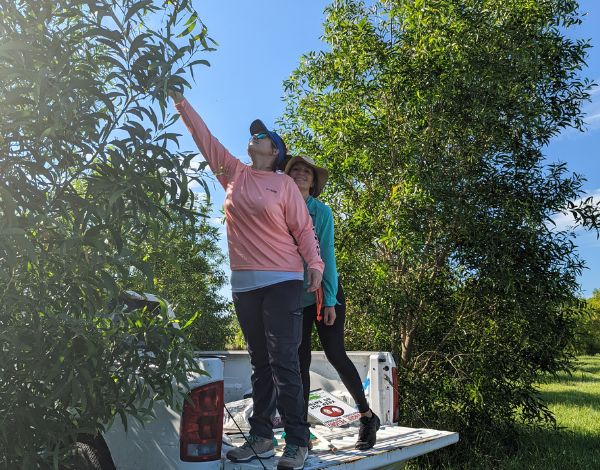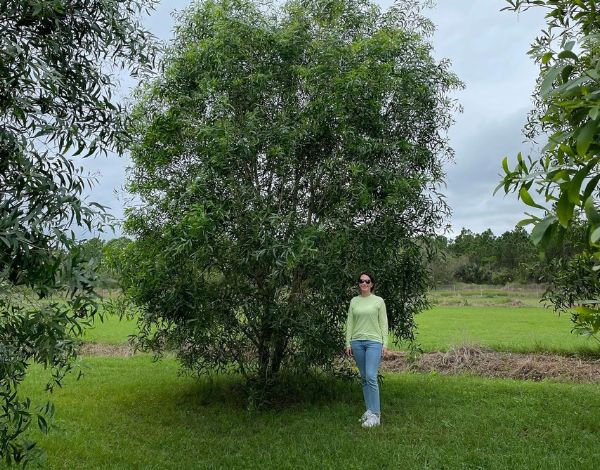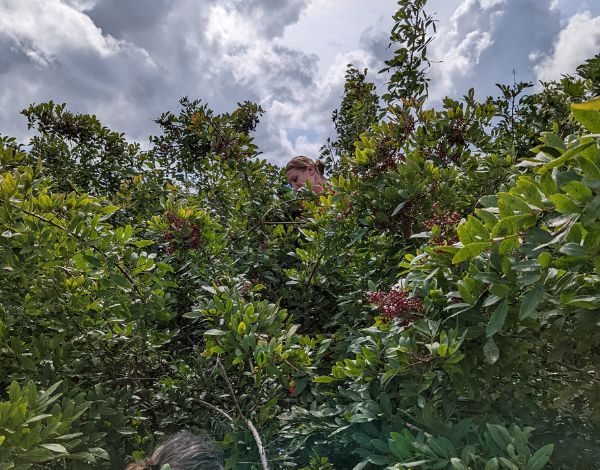History
Original Faculty
Ronald D. Cave is Professor of Entomology and Center Director of the Indian River Research and Education Center in Ft. Pierce, FL. He received his PhD from Auburn University in 1987, MSc from the University of California-Berkeley in 1977, and BSc from the University of California-Davis in 1975. He was a Peace Corps volunteer in El Salvador and Paraguay for 2.5 years. For 15 years, he was a professor at the Panamerican School of Agriculture (Zamorano) in Honduras, where he taught courses, conducted research on biological control, pest management, and biodiversity, and directed the Center for Biological Control in Central America. His research in the UF Hayslip Biological Control Research and Containment Laboratory investigated the biological control of invasive arthropods, particularly the importation of exotic insects as candidate biological control agents, assessment of commercial natural enemies, and study of the biology of parasitoids and predators. His current research now focuses on the biodiversity and taxonomy of dynastine scarab beetles in South America. In 2020, he was a recipient of the J. O. Westwood Award for excellence in insect taxonomy from the Royal Entomological Society. He is author or co-author of more than 140 peer-reviewed papers, 20 non-refereed publications, and 20 books or book chapters. He is a member of The Coleopterists Society (Honorary Member since 2023), and the agricultural honor society Gamma Sigma Delta.
Dr. Cave became the Indian River Research and Education Center Director in 2017. His duties are to provide leadership and facilitation in the planning, development, and implementation of research, teaching, and extension programs; recruit new faculty; promote academic success; advance professional development and recognition of faculty, staff, and students; and efficiently administer the Center’s human, financial, and infrastructural resources; and obtain external funding.
Bill Overholt is a Professor Emeritus of Entomology and Nematology. Dr. Overholt joined the faculty at the Indian River Research and Education Center in 2002. He has extensive international experience including 2 years in Peace Corps working with the Senegalese Plant Protection Service, 4 years in Mauritania with USAID, and 12 years at the International Center of Insect Physiology and Ecology in Nairobi, Kenya. The focus of Bill’s research program was biological control of invasive plants. His work focused on Brazilian peppertree, Hydrilla, tropical soda apple, and Phragmites, and involved foreign exploration, host range studies, and field release and evaluation of biological control agents. Bill also conducted extension activities aimed at increasing public awareness of the problems associated with invasive plants, and the application of biological control as a tool for their management. Dr. Overholt retired in 2016.




